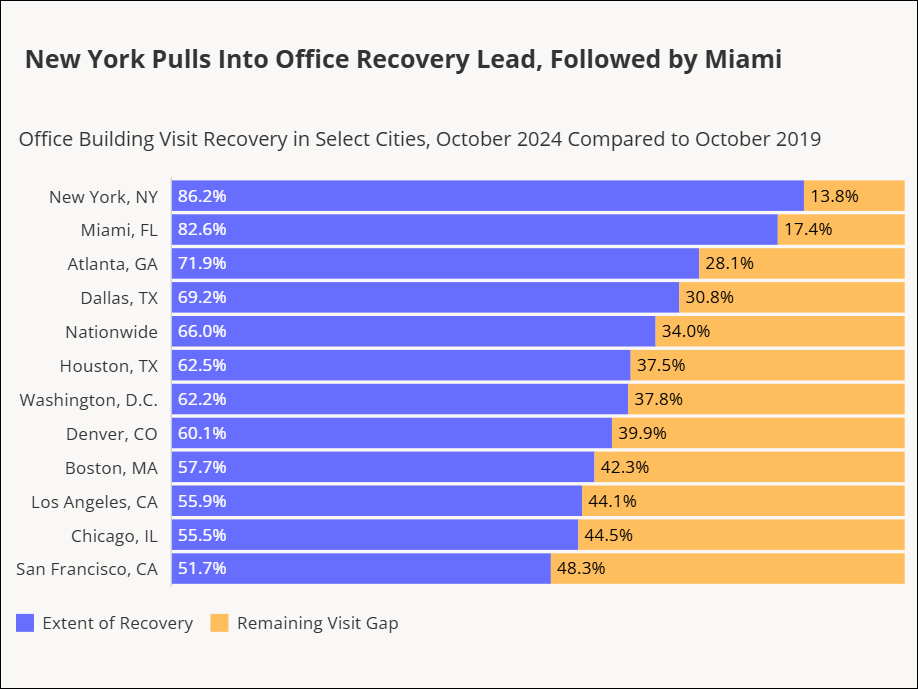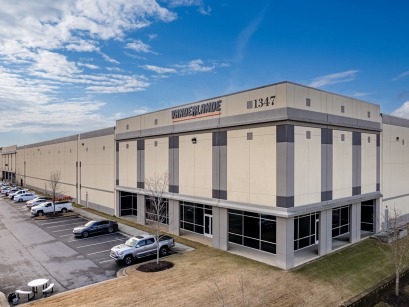NYU WIRE Special Report: Make Change Your Superpower
Get comfortable with feeling uncomfortable, Blackstone's Wesley LePatner advised during the keynote session.

To be successful in commercial real estate, you need to embrace change. That advice came from Wesley LePatner, a senior managing director in Blackstone’s real estate group & the global head of its Core+ Real Estate, during a keynote fireside chat at yesterday’s NYU Schack Institute’s Women in Real Estate Symposium.
“You have to constantly feel uncomfortable,” LePatner told Whitney Arcaro, chief revenue officer-residential for RXR. “The goal is not to develop mastery at something and be done and feel like 800 percent every day. It’s to become really comfortable with being asked to do new things and putting yourself out there to do new things.”
The seventh WIRE conference featured some of the most influential women in CRE sharing career and corporate strategies with a largely female audience of Schack Institute students and other aspiring CRE executives.
This January, LePatner, who joined Blackstone from Goldman Sachs in 2014, will assume the CEO role at Blackstone Real Estate Investment Trust or BREIT. She is currently director & COO of the non-traded REIT, which had a net asset value of $56.7 billion as of June 30.
READ ALSO: Prologis, Blackstone Double Down on Data Centers, But Hurdles Remain
The top executive also recommended: striving for excellence, having a passion for what you do, establishing a broad group of mentors and being willing to accept “very direct” feedback.
“Be the person who people feel totally comfortable with giving that super-raw, honest, at-times difficult feedback to,” she said.
Change is the name of CRE’s game
But for LePatner, the ability to change is not just a personal attribute—it’s also her company’s investment thesis. She reflected on how 10 years ago, Blackstone was starting a core-plus business, and at the time a core-plus portfolio would probably include retail, office, multifamily and probably some warehouse. That’s no longer the case. “That whole pie chart has changed because the world has changed,” she said.
Today Blackstone is getting behind the powerful technological and demographic shifts shaping how we live and work. So, core plus for Blackstone now means data centers, logistics and all types of rental housing, including student housing (Blackstone is the largest owner of student housing). BREIT is also largely invested in those property types.
Change isn’t easy
Change was also the overriding takeaway from the “Current Investment Themes” panel as well as what can happen when everyone embraces change at the same time.
Jocelyn McCaslin, vice president of hyperscale leasing for Corscale Data Centers, spoke about how five years ago her company was leasing partial buildings with 9 to 18 megawatts. Today they don’t lease anything less than a full building (the typical size is 400,000-500,000 square feet) and the power demand is 70 to 108 megawatts.
“…we were growing this quickly, and then you throw in AI, and we’ve got this incredibly huge new demand on top of the demand that we already had with cloud services,” she said.
The demand for power from companies like Microsoft, Google and Amazon is tremendous, McCaslin noted. Site searches often start with available power rather than available land. “…if you go to any data center conference, all we do is talk about power,” she noted. “There’s basically nothing else that matters.”
READ ALSO: Life Science Recovery Is in Sight
Life science is another area experiencing tremendous change and growth—maybe a little too much. The sector saw tremendous user demand during the pandemic, and a rush of real estate capital. But there was a softening when interest rates rose.
“What you saw was a flood of new entrants into the lab space—owners that typically had invested in office, coming into the life science real estate sector, seeing the positive fundamentals and building and delivering supply, kind of assuming that that elevated tenant demand level was going to stick around for longer than it did,” said Colleen O’Connor, executive vice president of East Coast & U.K. markets for BioMed Realty.
With interest rates starting to ease, however, O’Connor is once again giving tours to large users of biotech lab space in Boston’s Kendall Square area.
Pivoting and adapting
In the multifamily space, Kushner President Nikki Kushner Meyer said the firm has had to adapt to intense competition from institutions for multifamily investments. So, while the vertically integrated company has used its local knowledge and relationships to find a few off-market deals, it is largely focusing on development, breaking ground on three communities this year and delivering two.
On the operations side, Kushner has begun using AI tools to assist with such tasks as leasing, rent collection, making maintenance appointments and creating renderings. AI will not replace their leasing agents, Meyer said, but it will make them more effective and efficient.
“When you enter environments like this, you are forced to change,” she said. “Any organization that keeps just doing things the way they do it, just because you did it like that before, you’re not challenging yourself to do things better.”







You must be logged in to post a comment.